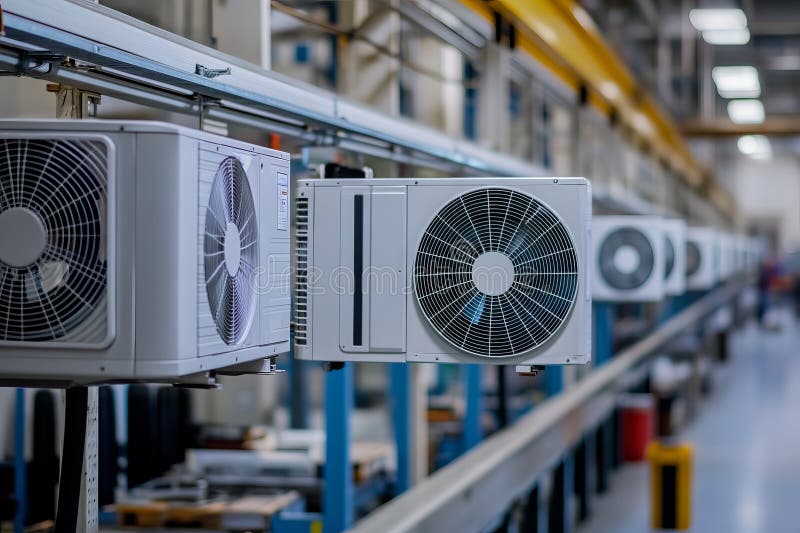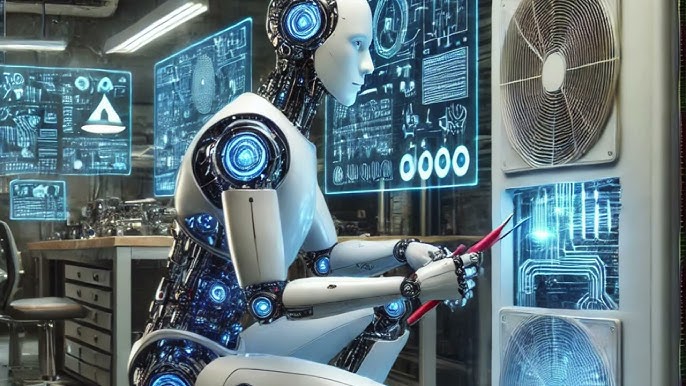The world of HVAC (Heating, Ventilation, and Air Conditioning) is undergoing a significant transformation with the advent of AI (Artificial Intelligence). The integration of AI into HVAC systems is not just a technological upgrade; it’s a revolution in how we understand and manage our indoor environments. At the heart of this revolution is the critical role of HVAC sensor data analysis using AI. This technology is helping to make our HVAC systems more efficient, reliable, and intelligent. In this article, we will delve into how AI is reshaping HVAC systems through sensor data analysis.

The Importance of HVAC Systems
HVAC systems are vital for maintaining comfort and air quality in buildings. They regulate temperature, humidity, and air circulation, ensuring a healthy indoor environment. However, traditional HVAC systems often fall short in terms of efficiency and adaptability. This is where AI steps in, bringing a new level of intelligence to these systems.
What is Sensor Data in HVAC?
Sensor data in HVAC refers to the information collected by various sensors installed within the system. These sensors monitor parameters such as temperature, humidity, airflow, and energy consumption. This data is crucial for understanding how well the HVAC system is performing and where improvements can be made.
How AI Transforms Sensor Data Analysis
AI algorithms are capable of processing vast amounts of sensor data quickly and accurately. By analyzing this data, AI can identify patterns and anomalies that would be difficult for humans to detect. This enables predictive maintenance, energy optimization, and improved system performance.
Predictive Maintenance
Through predictive maintenance, AI can forecast when parts of the HVAC system are likely to fail. This allows for timely interventions, reducing downtime and extending the lifespan of the system.
Energy Optimization
AI can optimize energy usage by adjusting system settings based on real-time data. This not only reduces energy consumption but also lowers operational costs. The result is a more sustainable and cost-effective HVAC system.
Benefits of AI-Driven HVAC Systems
The integration of AI in HVAC systems offers numerous benefits. These include enhanced efficiency, reduced maintenance costs, improved air quality, and greater occupant comfort. AI-driven systems adapt to changing conditions, ensuring optimal performance at all times.
Challenges in Implementing AI in HVAC
Despite its advantages, implementing AI in HVAC systems is not without challenges. These include the need for significant initial investment, data privacy concerns, and the requirement for skilled personnel to manage AI technologies. However, the long-term benefits often outweigh these challenges.
Data Privacy Concerns
As AI systems rely heavily on data, ensuring the privacy and security of this data is crucial. Companies must adhere to data protection regulations and implement robust security measures to protect sensitive information.
Future of HVAC with AI
The future of HVAC systems is undoubtedly intertwined with AI. As technologies continue to evolve, we can expect even more sophisticated and efficient systems. AI will enable HVAC systems to learn from their environments, becoming more autonomous and responsive to user needs.
Smart Factories
The concept of smart factories is gaining traction, where AI-driven HVAC systems play a crucial role in maintaining optimal environmental conditions for manufacturing processes.
Real-Time Diagnostics
Real-time diagnostics enable continuous monitoring and analysis of HVAC systems. This ensures quick detection of issues and prompt resolution, minimizing disruptions. Explore more about real-time diagnostics.
Conclusion
In conclusion, HVAC sensor data analysis using AI is revolutionizing the way we manage indoor environments. By enhancing system efficiency, reducing costs, and improving comfort, AI is paving the way for smarter and more sustainable HVAC solutions. As technology continues to advance, the potential for AI in HVAC systems is limitless.

Frequently Asked Questions
What is the role of AI in HVAC systems?
AI enhances HVAC systems by analyzing sensor data to optimize performance, predict maintenance needs, and reduce energy consumption.
How does AI contribute to energy efficiency in HVAC systems?
AI adjusts system settings based on real-time data, optimizing energy usage and reducing operational costs.
What are the challenges of implementing AI in HVAC systems?
Challenges include initial investment costs, data privacy concerns, and the need for skilled personnel to manage AI technologies.
This article contains affiliate links. We may earn a commission at no extra cost to you.
